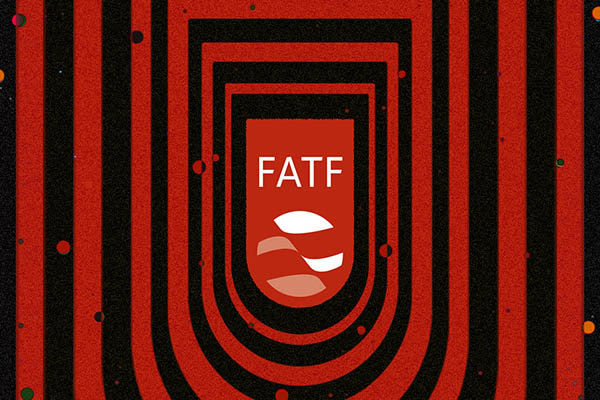
File photo
Energy Minister Hammad Azhar claims government will complete APG action plan within 12 months
The Paris-based Financial Action Task Force (FATF) on Friday announced that Pakistan will remain on its grey list—an increased monitoring designation—until it has implemented the sole remaining point on a 27-point action plan agreed upon in June 2018, as well as six items on an action plan concerning money-laundering that has been demanded by the Asia Pacific Group.
“Pakistan has made significant progress and it has largely addressed 26 out of 27 items on the action plan it first committed to in June 2018,” said FATF President Marcus Pleyer in a virtual press conference after the global watchdog’s five-day plenary meeting. He said the remaining point concerned financial terrorism, including the investigation and prosecution of senior leaders and commanders of U.N.-designated terror groups. He also explained the new action plan that Pakistan had to submit to in addition to completing the FATF’s requirements.
“Back in 2019, FATF regional partner, the Asia Pacific Group, identified a number of serious issues during its assessment of Pakistan’s entire anti-money laundering and counter-terrorist financing system. Since then Pakistan has made improvements. This includes clear efforts to raise awareness in the private sector to money laundering risks and to develop and use financial intelligence to build cases,” he said, adding that unfortunately Pakistan was still “failing to effectively implement the global FATF standards” in several fields. This, he stressed, raised the risk of money-laundering that could fuel corruption and organized crime.
“That is why the FATF has worked with the Pakistan government to work on areas that need to be improved as part of the new action plan that largely focuses on money laundering risks. This includes increasing the number of investigations and prosecutions and making sure that law enforcement agencies cooperate internationally to trace, freeze and confiscate assets,” he said.
APG plan
Of the APG plan that Pakistan must now complete in addition to the 2018 action plan, Pleyer said it dealt with “enhancing international cooperation and demonstrating that assistance is being sought from foreign countries in implementing U.N. Security Council designations.” He said this would demonstrate that supervisors “are conducting both onsite and offsite supervision commensurate with the specific risks associated with the non-financial sector,” as well as ensuring that “sanctions are applied to all legal persons and arrangements for non-compliance with beneficial ownership requirements; increase in money laundering investigations and demonstrating that non-financial sector is being monitored for compliance with proliferation financing requirements.”
To a question, he said that Pakistan’s removal from the grey list could only happen once both action plans had been addressed in full. “The delisting will not occur before both action plans are completed and two onsite [assessments] have been granted and successfully completed and have shown that the improvements are sustainable before the FATF members decide on delisting,” he added.
One more year
Addressing a press conference after the FATF announcement, Energy Minister Hammad Azhar claimed the government would implement the APG action plan within 12 months. “The importance of FATF has increased significantly in the current [global security] situation. FATF wants better monitoring of money laundering,” he said, adding that work was continuing on the remaining point of the original action plan and it would be implemented within 3-4 months.
“The previous action plan was for counter-terrorism and the new one is for anti-money laundering,” he explained, noting that this would be easier to fulfill, as Pakistan did not face as great risk from money-laundering as it did in tackling counter-terrorism one.
“Pakistan has not been moved out of the grey list but Pakistan’s progress was noted globally,” he said and reiterated that the threat of the “blacklist”—and the harsh sanctions that entails—had ended. “Pakistan will not be blacklisted, it will be whitelisted,” he claimed.
